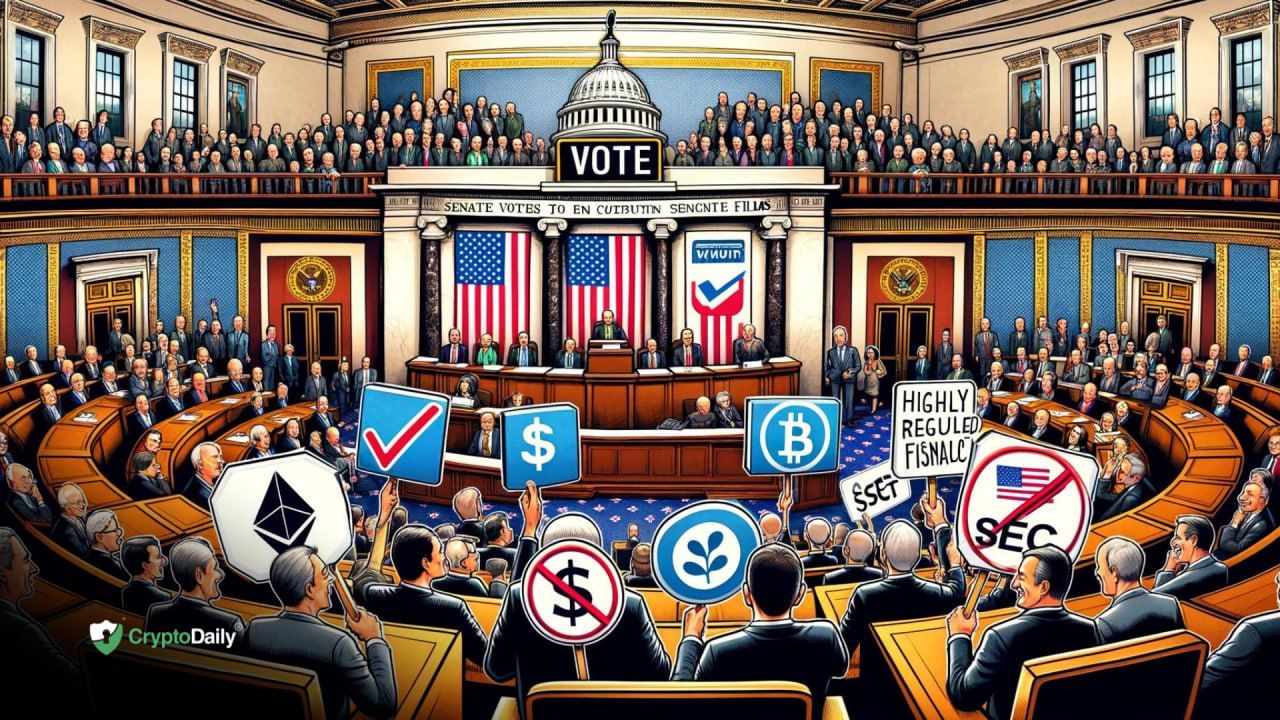The Senate passed a bipartisan vote to overturn the SEC's restrictive rule on custodying digital assets, despite concerns raised by President Biden and the SEC regarding investor protection and market stability.
Bipartisan Vote Overturns SEC’s Bulletin
In a decisive move, the Senate, with bipartisan backing, has voted to overturn the SEC's Staff Accounting Bulletin (SAB) No. 121, a rule that placed strict limitations on financial institutions regarding custody of digital assets such as Bitcoin.
H.J.Res. 109, the resolution aimed at dismantling SAB 121, has already cleared the House and garnered significant support in the Senate. Under the Congressional Review Act, this resolution aims to pave the way for regulated financial firms to enter the crypto custody space.
The vote, with a tally of 60-38, signifies a significant shift in the regulatory landscape surrounding cryptocurrencies.
Concerns and Contention
SAB 121, which had previously hindered financial firms from offering custodial services for digital assets, is now under review. President Joe Biden has expressed reservations about the Senate's decision, stating that removing the rule could disrupt efforts to safeguard investors in crypto markets and the broader financial system.
The SEC echoed these sentiments, with a spokesperson stating,
"SAB 121 is non-binding staff guidance that, if followed, enhances important disclosure to investors in firms that safeguard crypto assets for others. Time and again, we have seen crypto firms fail and watched as their customers lined up at the bankruptcy court in hopes of getting what they thought was legally theirs."
Bipartisan Supporters of the Resolution
Advocates for overturning SAB 121 argue that it is essential for consumer protection. This sentiment is particularly fueled by the SEC's recent approvals of spot Bitcoin Exchange Traded Funds (ETFs), which predominantly rely on institutional custody. The resolution seeks to remove barriers and enable more regulated institutions to offer custody services, addressing concerns of centralization.
Despite some dissent within the Democratic Party, the resolution received substantial bipartisan backing, with a dozen Democrats joining Republicans in its favor. Notably, Senate Majority Leader Chuck Schumer and other Democratic leaders opposed the SEC's stance on crypto regulation, aligning with the resolution's objectives.
Criticism of SAB 121
Critics argue that SAB 121 imposes unnecessary restrictions on financial institutions, hindering their ability to meet the growing demand for Bitcoin services. They contend that regulated entities are well-equipped to manage the associated risks, given their robust compliance frameworks and security measures.
Senator Cynthia Lummis, a prominent advocate for Bitcoin, has been vocal in her support for overturning SAB 121.
She claimed,
"SAB 21 is a rule under the Administrative Procedure Act, disguised as an accounting guidance. It was published by the SEC staff without the approval of the majority of the commission."
Disclaimer: This article is provided for informational purposes only. It is not offered or intended to be used as legal, tax, investment, financial, or other advice.





